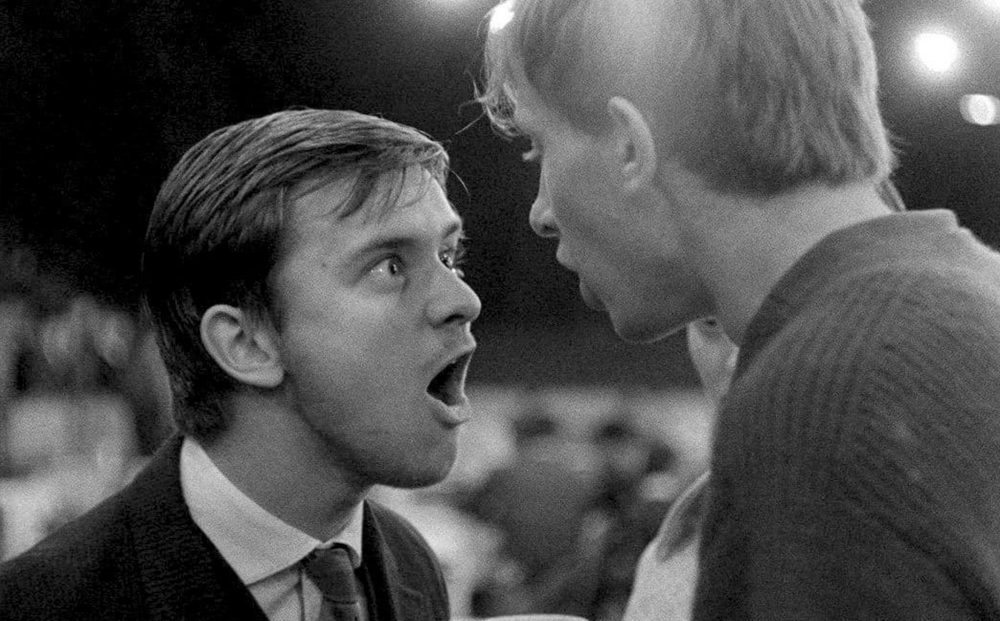BLACK PETER
Monday, September 12
2:20
Friday, September 16
12:30 6:10
Saturday, September 17
4:15
Wednesday, September 21
12:30 6:00
Czechoslovakia, 1964
Directed by Miloš Forman
Starring Ladislav Jakim, Pavla Martínková
Approx. 82 min. DCP.
“Peter (Ladislav Jakim), at the age of 17, takes a job in a supermarket, where he is made store detective. Like Truffaut's Antoine Doinel, to whom he is a kind of inarticulate first cousin, he thus finds himself in a position of considerable low-level responsibility, with which he is completely unable to cope.He arrests no shoplifters—though he does follow one suspicious character all the way home without stopping him because he can't think of what he should say. With similar mastery he courts his girl (Pavla Martínková) and suffers the lectures on success and manly labor, that are regularly provided him by his father (Jan Ostroil, in an ultimately hilarious performance). BLACK PETER doesn't really have a story, even in the way that Truffaut's Antoine movies have stories, and, given Forman's comic vision, it is proper that it should not. Instead it has a series of events and interconnected anecdotes and a sense, absolutely unassailable, that even behind its most threatening mask, life bares a face of disarming helplessness. BLACK PETER isn't about anything so pretentious as the brotherhood of man, but it acknowledges a brotherhood of men (and women) that is at once consoling and quite sadly funny. For the most part, BLACK PETER is about a small town's summer months, and I cannot remember a film so wonderfully sensitive to summer pleasures.” – Roger Greenspun, The New York Times
Reviews
“Anticipates Forman’s subsequent 1960s output in its wryly affectionate, gently satirical character-based comedy that laughs with and never at its typically extended cast of characters who orbit around the hapless titular teenager. Indeed, the distanced yet sympathetic eye that the director casts over all his characters, the fact that he tends to watch rather than appear to engage with them, to observe from a discreet vantage point rather than becoming one with their trials and tribulations, is highly significant."
– Senses Of Cinema

